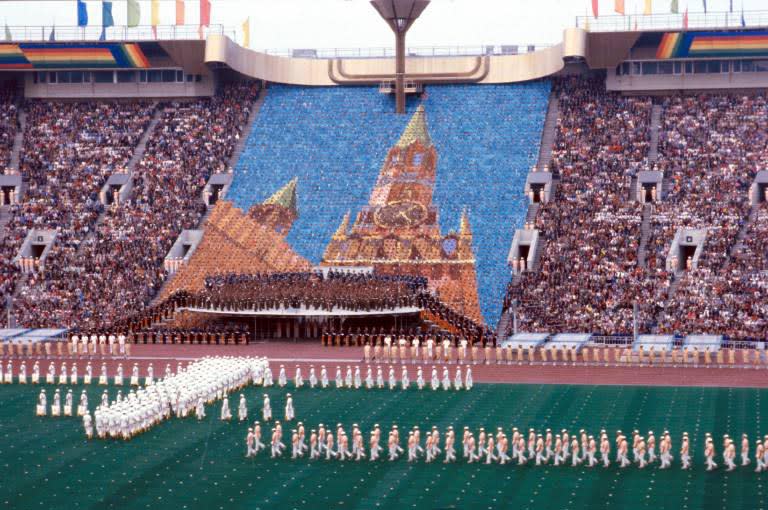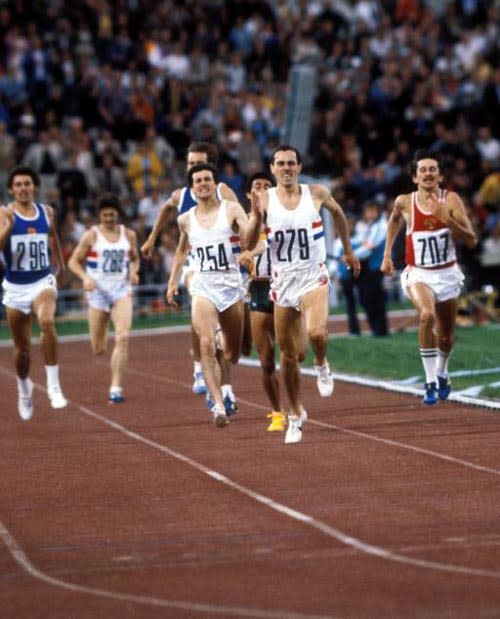 London Spy
London SpyOlympic history: Moscow 1980
The Soviet invasion of Afghanistan in 1979 was the trigger for the boycott of the Moscow Olympics the following year. Estimates of the impact in terms of numbers vary, and reports suggest some nations used the boycott as a convenient excuse to stay away because of economic issues.
The significance has less to do with the quantity of absentees — possibly as low as 45, maybe as high as 60-plus — than with the quality. The United States led the boycott and were supported by Canada, West Germany, Japan, China, Kenya and more.
A total of 80 nations competed — the lowest since 1956 — and some did so under the Olympic flag rather than their own.
So the scene was set for some unfamiliar names to make their mark, and none more so than Zimbabwe. As Rhodesia, the African nation had been banned from the previous two Games. It returned with a new identity, free of apartheid and good enough to win the inaugural women's hockey gold medal, albeit in something of a makeshift competition.
The hosts won at least one gold medal for every sport except hockey, in which India won the last of their men's gold medals, and football, won by Czechoslovakia.
Every gymnastics medal went to eastern Europe. Nadia Comăneci won two golds and two silvers for Romania in her last Games and there were two golds for Soviet star Nellie Kim. Nikolai Andrianov won two golds, two silvers and a bronze to take his medal total to 15 from three Games, a men's record beaten only by Michael Phelps. His team mate Alexander Dityatin won a medal in each of the gymnastics events, his record of eight medals in one Games again matched only by Phelps.
East Germany won 11 out of 14 rowing golds and all but two of the women's swimming gold medals.
In boxing the Soviets were beaten into second place by Cuba, literally in the case of Téofilo Stevenson, the big-hitter who defeated Piotr Zaev to become the first fighter to win three consecutive heavyweight gold medals. The next boycott, of Los Angeles in 1984, would deny him the chance of a fourth success.
Viktor Saneev came up short in his bid for a fourth consecutive triple jump gold, but there were suggestions it took some dubious "foul" calls against his opponents, by Soviet judges, for the champion to even achieve silver.
Waldemar Cierpinski of East Germany won a second successive marathon. Allan Wells became the first British winner of the 100m since Harold Abrahams in 1924 and two great rivals provided further British success, Steve Ovett at 800m and Sebastian — now Lord — Coe at 1,500m.
Miruts Yifter, who was denied the chance to improve on his 10,000m bronze in Munich by Ethiopia's boycott of Montreal, returned to win that event and the 5,000m.
There were a number of twin successes. Sergei Beloglazov won freestyle wrestling gold at bantamweight and twin Anatoli conquered the flyweight class. Walter and Ullrich Diessner were members of East Germany's successful coxed four. Their compatriots Jörg and Bernd Landvoigt beat the Soviet twins Yuri and Nikolay Pimenov to win the coxless pairs.
They would be followed by a twin disappointment when the Soviets responded to the American-led boycott of the Moscow Olympics by leading east European nations and a few other sympathisers in their own boycott when the 1984 Games went to Los Angeles.
Top three performances
1-Miruts Yifter (ETH) - Doubled up with golds in the 5000m and 10000m.
2-Teofilo Stevenson (CUB) - The Cuban amateur boxing legend won his third heavyweight gold.
3-Steve Ovett and Sebastian Coe (GBR) - Split the glory at 800m and 1500m, each winning the other's stronger event.
Did you know?
The USA led a boycott of the Games in protest at the Soviet invasion of Afghanistan. British athletes were allowed to compete, but only under the Olympic Flag.
21 per cent of the competitors were female, more than at any previous Olympics.
Austrian rider Elisabeth Theurer was ordered not to compete by her national federation. However, F1 star Niki Lauda flew her to Moscow in his private jet and she duly won gold.

 Yahoo Sport
Yahoo Sport 













































